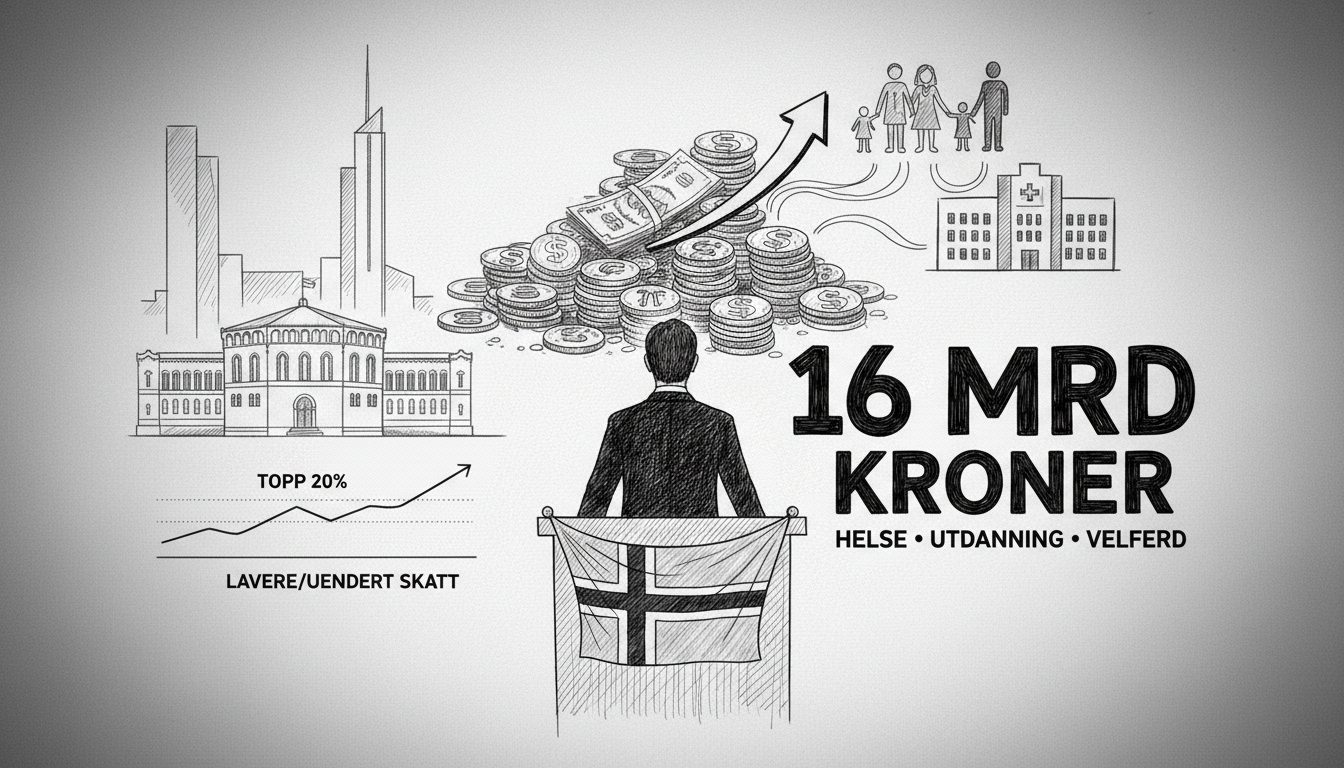Norway's Socialist Left Party enters budget negotiations with demands totaling approximately 16 billion kroner. The party's financial spokesperson Marthe Hammer confirmed the substantial budget package. This represents one of the largest budget proposals from the party in recent parliamentary sessions.
The party focuses heavily on social welfare improvements. They demand strengthened staffing in healthcare and elderly care services. The proposal also targets after-school programs and kindergartens. A key element makes after-school programs free for fourth-grade students. Currently, many Norwegian families pay substantial fees for these services.
To fund these initiatives, the party proposes increasing taxes and fees by about 22 billion kroner. Approximately 15 billion kroner would come from wealth tax increases alone. The additional revenue would finance higher benefits and cheaper dental care. It would also strengthen the economy for low and middle-income Norwegians.
Hammer emphasized that most Norwegians would benefit. Four out of five people would pay the same or lower taxes under their plan, she said in a statement. The proposal specifically targets wealth redistribution while protecting lower-income households.
Norwegian budget negotiations typically involve intense bargaining among political parties. The Socialist Left Party often pushes for expanded welfare state measures. Their current demands align with traditional Scandinavian social democratic values. However, they face challenges convincing coalition partners in Norway's multi-party system.
This proposal comes amid ongoing debates about Norway's economic direction. The country balances its massive oil wealth with social welfare commitments. Wealth taxes remain particularly controversial in Norwegian politics. Business groups often argue they discourage investment, while left-wing parties view them as essential for fairness.
International observers watch Norwegian budget debates closely. The country's approach to wealth distribution and social services often serves as a model for other nations. The outcome of these negotiations could influence similar discussions in other Nordic countries facing comparable economic pressures.
What happens next depends on parliamentary negotiations. The Socialist Left Party must convince other parties to support their vision. Their success will determine whether these substantial welfare improvements become reality for Norwegian families.

